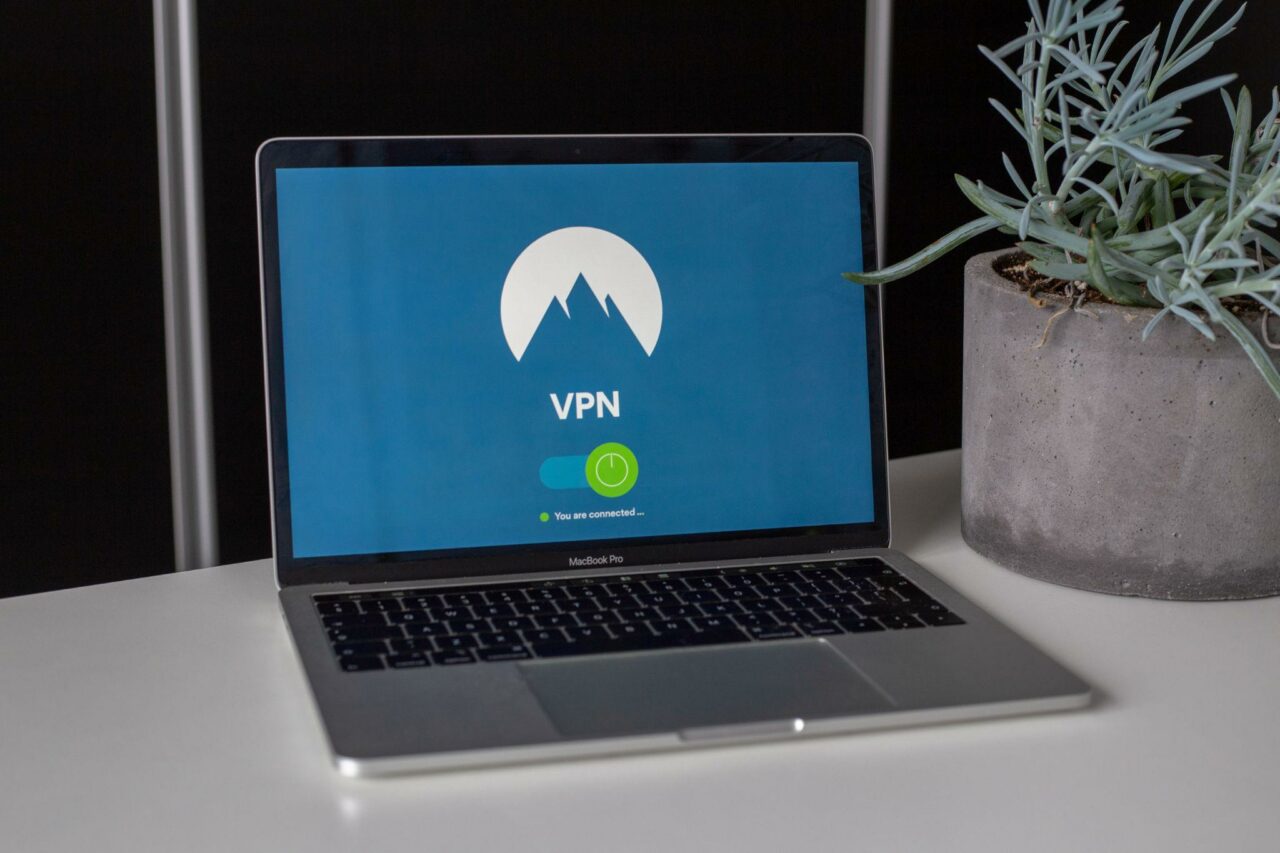Have you ever wondered how companies protect their databases and computer systems? The answer is simple: they need security engineers.
If you want to work in this role, you are in the right place! I will show you how to become a security engineer in six steps. You must be excited about the journey ahead, right? So, let’s jump right in!
Who Is A Security Engineer?
A security engineer is an IT expert who keeps their company’s data safe. To do it, they use the latest technologies to develop and manage security systems.
The security engineer must understand how the systems work so they can identify and address errors. They also have to avoid attacks from hackers.
Aside from building security systems, the security engineer has to monitor and upgrade them continuously. If there are any errors, they will be the first one to detect and address them.
As a security engineer, I deal with the technical aspects and computer systems of a company. I will detail my roles and responsibilities in the section below.
Roles and Responsibilities
My primary duty is to safeguard the databases of my company. It sounds straightforward, but I have to do many relevant tasks.
I protect the data and networks by building security systems. Then, I develop security protocols so my company can use them at work and update them easily.
Another solution for this task is to set strong passwords. I also develop security updates for devices in my company. Then, I train others how to work with them.
Cybercriminals are my enemies. Thus, I have to test computer and network systems for any errors. If somebody breaches the network, I will identify and cause and prevent hackers from accessing the databases.
I have done lots of stuff with the security systems, right? So, to help everyone in the company to use them, I have to write reports. I also track how they handle and upgrade the systems.

Qualifications and Skills
If you want to become a security engineer, you must meet qualification and skill requirements.
First, prepare solid technical knowledge. It involves multiple concepts, such as programming, network protocols, and databases.
Work hard on cybersecurity, too. As a security engineer, you have to build security frameworks to fight against cybersecurity threats in the future.
And don’t ignore soft skills! Communication, time management, and problem-solving skills will help you deliver excellent work.

How To Become A Security Engineer
So, are you ready to become a security engineer? Take these seven steps and devote yourself to every part of the journey!
1. Develop your cybersecurity skills
Let’s start with cybersecurity skills! They are the strongest weapons for protecting your company’s databases. You have many things to work on here.
Let me explain one by one!
Coding
You need to write high-quality, secure code to build security systems and automate some repetitive tasks. Java, Ruby, Python, Bash, and C++ are the most important languages to learn.
Network security
I notice that many errors come from networks. Thus, study network architecture if you want to deal with security issues.
This aspect involves various concepts. For example, you use routing protocols to manage routers. I use firewalls, too, to monitor network traffic.
Penetration testing
You perform penetration testing, or a pen test, on computer systems to check their security. Then, you can find errors and recommend fixes and upgrades.
Operating systems
Each company has its own working system. Linux, MacOS, and Windows are the most common choices. So, learn how to secure environments on those systems first. Then, when you get hired for a company, focus on the one they use.
Endpoint security
Endpoint security is the process of securing the entry or endpoints of end-user devices. It means you protect laptops, mobile devices, or desktops from malicious campaigns and actors.
There are many solutions to carry out this task. I often use firewalls and other antivirus protection tools. Once you’ve become familiar with endpoint security, you can go for other technologies.
Intrusion detection system
I like using IDS (Intrusion Detection System), too. It helps me observe network traffic and detect malicious transactions. Then, it will send alerts that require my immediate attention.
Database platforms
Data must be the most crucial asset in any company, and safeguarding it is your duty. Data is complicated because it comes from multiple sources and works differently. To handle it properly, you have to learn how to structure, store, and access it. During those processes, always put security at the top concern.

2. Get certified
Studying is a must, and it would be best to earn certifications for what you have learned. Here are the best options for security engineers:
CompTIA
CompTIA is a famous platform that promotes industry development through education. I have taken some certifications from CompTIA. With the CompTIA CySA+ and CompTIA Security+ certifications in your resume, you will surely stand out.
These courses help you perform security practices properly. And the best thing I like about them is that I can earn hands-on experience in the classes.
CISSP
This certification teaches you to design and manage security programs. Once you’ve got it, no more worries about complex systems.
SSCP
Wanna work with IT infrastructure? Then go for this certification! You can learn the best policies, procedures, and practices in the field.

3. Take entry-level positions
Now, you have certifications. Unfortunately, they are not enough to apply for a security engineer position. This job requires lots of experience.
So, my advice is to start with entry-level positions. For example, you can work as a pen tester or cybersecurity analyst first. Then, accumulate experience and develop your skills. Once you are confident enough, aim for your dream job.
Although they are entry-level positions, don’t overlook them! I used to be a cybersecurity analyst before working as a security engineer. And I never regret trying this role.
During that time, I could join many projects. They were really different from what I imagined. In fact, the complexity was on the next level.
Moreover, I could work with many experts in the field. They taught me a lot of things and assisted me a lot at work.
Working in those positions was also a precious chance to network. I got to know many people, and one of them introduced me to the opportunity for my job.
Hence, even when you are a newcomer, be serious and hard-working! You can always learn from little things. Over time, they build up and form a strong foundation for your future job.

4. Get a master’s degree
Most companies require their security engineers to get a bachelor’s degree in a relevant field, such as computer science, cybersecurity, or software engineering.
However, if you obtain a master’s degree, you will have more job chances. But don’t be stressed about it! Just get the bachelor’s degree first. Then, while working in entry-level positions, you can achieve higher education.
The master’s degree will give you tons of benefits. For example, you can dig deeper into certain areas of your major.
Moreover, you will negotiate a higher salary with that degree in your hand. There are also more benefits and bonuses for master’s degree holders.

5. Hone your soft skills
You’ve done a lot with your technical qualities. But don’t overlook the importance of soft skills. Here is what you need when working as a security engineer:
Communication
If you take this role, you will collaborate with others, such as other engineers, developers, and managers. Moreover, you have to write reports or prepare presentations.
All these tasks are tricky, but you can nail them with your communication skills. Remember, both verbal and written aspects are important.
You can practice those skills when you are still at school. For example, when you join clubs, try interacting with your friends. And if you have assignments, volunteer to be the speaker of your group.
Problem-solving
If you want to become a security engineer, be ready to face problems every day! The key is that you have to solve them immediately.
It means you should be a good problem solver. You need to identify the root of the problem and find the best solution.
Time management
There are many tasks to cover. If you don’t know how to manage your time effectively, the tight deadlines will overwhelm you.
I face this problem sometimes. To deal with it, I focus more on planning. Before starting to work, I write down what I must do. Then, I prioritize the more important tasks. You can try this tip at work, too.
Attention to detail
A tiny mistake will destroy the whole security program you spent hours developing and fixing. Thus, you must pay attention to detail.

6. Seek job opportunities
Finally, once you’ve got skills and experience, apply for a security engineer job. This final step sounds simple, but you have many things to do. Let me list them here:
- First, prepare a strong resume where you can highlight your skills, experience, and certifications.
- Find job openings on job search websites or from your friends.
- Read the job descriptions carefully and customize your resume so it can fit the criteria.
- Send your resume and cover letter to your potential employers.
- Once you’ve received an interview invitation, prepare some questions the interviewers may ask. Then, you can answer them confidently.
- On the interview day, dress professionally and show up on time.
- Answer the questions honestly. Don’t forget to showcase what you have for the job.
- After the interview, send a thank-you letter to the interviewer.

Salary
Your salary depends on your experience, skills, location, and the company you work for. But generally, this job is well-paid.
According to ComputerCareers, security engineers can earn around $106,317 annually (in 2023). This salary rate is higher than many other jobs.
Moreover, this job is in high demand. Since each company has sensitive data and networks, they need experts to protect them. That’s why they offer good salaries to attract top talent.
Career Challenges
The benefits are numerous. However, you will encounter a lot of challenges. For example, the learning curve is steep. Even after years of learning, you can’t just jump straight to your dream job because it requires experience.
Moreover, you have to work under pressure. You will be in charge of the security systems of your company. This job doesn’t allow for any mistakes.
But don’t panic! All these challenges make your job interesting. So, instead of avoiding them, learn how to beat them and shine in your role!
How Long Does It Take To Become A Security Engineer?
It depends on your chosen path. To me, I took a bachelor’s degree, which required four years. Then, I spent two years working in entry-level positions. During this time, I earned certifications.
Some schools provide accelerated programs. So if you choose them, you can save time.
FAQs
1. Is a security engineer a good job?
Yes. This job is in high demand. You can also receive good pay and benefits as a security engineer.
2. Is it hard to become a security engineer?
Yes. To work in this role, you must study computer science, cybersecurity, databases, and many other technical concepts. Soft skills are vital, too.
3. What degree is needed to become a security engineer?
Most employers require at least a bachelor’s degree. Yet, if you get a master’s degree, you will indeed have more opportunities.
4. What are the skills required to become a security engineer?
If you want to take this role, you have to hone many skills, such as:
- Operating systems
- Coding
- Data management
- Encryption
- Network security
- Communication
- Problem-solving
Final Thoughts
There are only 6 steps on this journey. Yet, to become a good security engineer, you have to study and practice a lot. Each step requires a lot of investment.
My last advice is to follow your passion and work diligently in every step. All your hard work will surely pay off! Then, enjoy the benefits you can get from this job!
